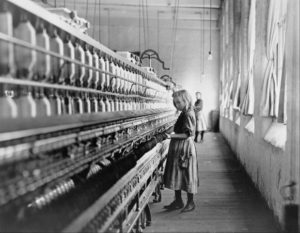Bits and Pieces
GOOD: After 30 years in a Georgia prison for a crime he did not commit, Ron Jacobsen is exonerated.

From the Innocence Project…
Even though Ron Jacobsen’s conviction was overturned in 2019 after DNA evidence proved his innocence, the district attorney insisted she would take his case to a second trial and opposed his release on bail. At the same time, she offered Ron a plea deal. If he would plead guilty, he could walk out of prison immediately. He refused, and the district attorney continued to argue that he was “too dangerous” to be released on bail while she pursued a retrial. Ron was released from pre-trial detention on Nov. 4, 2020, after the court set bond over the district attorney’s objections, and he immediately returned to his home state of New York where he reunited with his sister and awaited news of a retrial.
On Aug. 27, 10 months after posting bond, the newly elected district attorney dismissed all charges, officially exonerating Ron.
On learning of his exoneration, he said, “Thirty years ago, I was called a liar for proclaiming my innocence at trial. Today, I have my freedom by the overbearing proof of my innocence of this crime which I was convicted of, sentenced to life for, and ultimately justice prevailed through the tireless work and efforts of Vanessa Potkin and the Innocence Project. I have my life back and words can’t do justice to my gratitude and appreciation to everyone at the Innocence Project. Thank you.”
Click here.
BAD: Parts shortage will keep auto prices sky-high.
Back in the spring, a shortage of computer chips that had sent auto prices soaring appeared to be easing. Not anymore. A surge in the Delta variant of COVID-19 in several Asian countries that are the main producers of auto-grade chips is making the shortage worse.
And it’s not just computer chips. Automakers are starting to see shortages of wiring harnesses, plastics, and glass, too. The result is that vehicle buyers are facing persistent and once-unthinkable price spikes. The average price of a new vehicle sold in the United States in August hit a record of just above $41,000 – nearly $8,200 more than it was just two years ago, J.D. Power estimated.
Click here.
AWKWARD AND UNCERTAIN: Apple halts plan to scan child sex abuse images in iPhones.
Apple has decided to delay its plan to scan iPhones or iPads for child sex abuse images to “protect children” after a backlash from customers, advocacy groups, researchers, and others.
On Aug. 5, Apple announced it would be launching an “ambitious” plan of “expanded protections for children” using breakthrough cryptography technology and artificial intelligence to find abuse material when it is stored in iCloud Photos.
Illegal images would be reported to the National Center for Missing and Exploited Children, Apple said. A later memo added that “the possibility of any given account being flagged incorrectly is lower than one in one trillion.”
The announcement caused immediate and severe criticism.
“This sort of tool can be a boon for finding child pornography in people’s phones,” John Hopkins University professor and cryptographer Matthew Green, an outspoken critic of Apple, wrote on Twitter. “But imagine what it could do in the hands of an authoritarian government?”
For more, click here and here and here.
3 Bits on Banksy
I’m a Banksy fan. He’s clever. Fun. Talented. Here are three recent stories about him…
- In 2018, Banksy’s Love Is in the Binsold at Sotheby’s London for $1.37 million. No sooner had the gavel clapped than the framed illustration partially shredded itself.

Well, Sotheby’s will be auctioning off the work again this year, according to Art News. But this time it carries an estimate of $5 to $8 million. Click here.
- Someone hacked into Banksy’s website and managed to use it to sell an ersatz Banksy NFT for $336,000 in crypto, according to the BBC. A security expert says he learned of the website’s vulnerability before the fraud and tried to notify the artist’s representatives, but they were unresponsive to his calls and text messages. Click here.
- Within days of one another, two unauthorized shows about Banksy opened in Seoul and New York City. Unauthorized means the artist gets no royalties. Understandably, Banksy was not happy. Click here and here.
2 Snapshots of History
Lewis Wickes Hine (Sept. 26, 1874 – Nov. 3, 1940) was an American photographer and sociologist. Hine used his camera as a tool for social reform, particularly regarding child labor laws.

Below are two of his better-known photos (from the U.S. National Archives).
- A young girl tends the spinning machine at a cotton mill in North Carolina. Children worked adult hours for pennies in mills and factories all over the United States until the Fair Labor Standards Act of 1938.

- Hiram Pulk, age 9, worked in a canning company. He told Hine, “I ain’t very fast, only about 5 boxes a day. They pay about 5 cents a box.”

Strange but Sweet…
The young man in this video – an apparently very nice young man – does not feel comfortable as a man. But he doesn’t feel like a woman either. He’s thought about other gender opportunities out there, but none feels right to him. He’s going to remove his genitalia completely… to realize the being he believes he was born to be.
Well Said: 4 Worthy Thoughts on Rationality
* “Reason has built the modern world. It is a precious but also a fragile thing, which can be corroded by apparently harmless irrationality.” – Richard Dawkins
* “It is in the nature of foolish reasoning to seem good to the foolish reasoner.” – George Eliot
* “Man is not a rational animal; he is a rationalizing animal.” – Robert A. Heinlein
* “Reasoning will never make a man correct an ill opinion, which by reasoning he never acquired.” – Jonathan Swift
 MarkFord
MarkFord